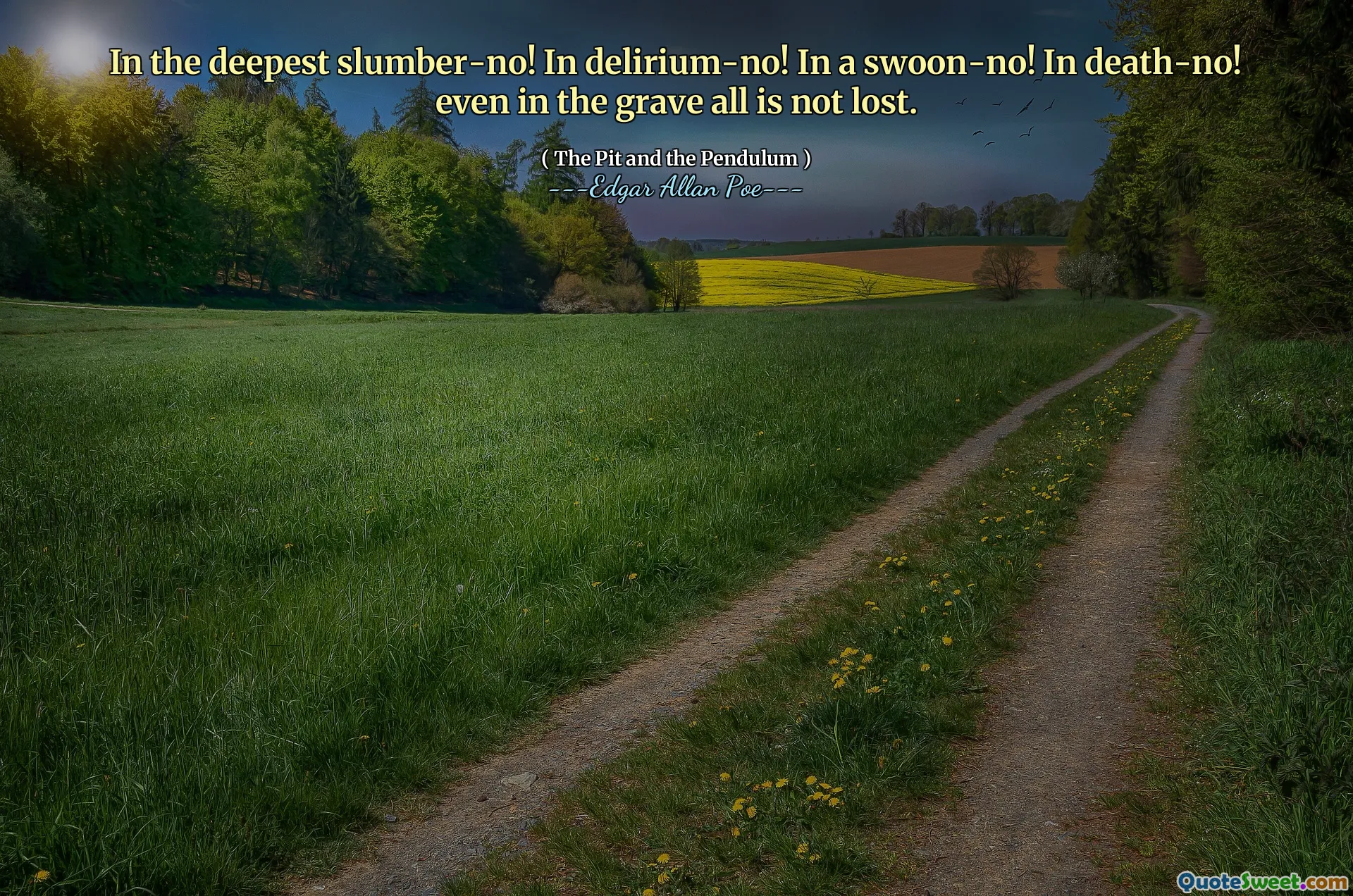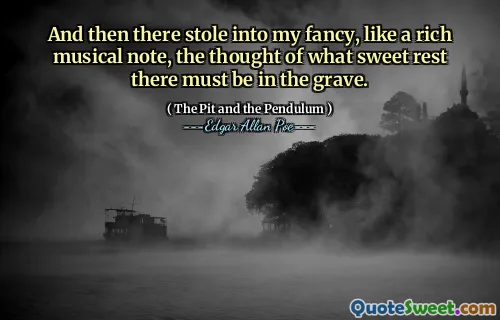
In the deepest slumber-no! In delirium-no! In a swoon-no! In death-no! even in the grave all is not lost.
In Edgar Allan Poe's "The Pit and the Pendulum," the profound theme of despair is explored through the narrator's torturous experiences. The quote emphasizes that even in the direst situations, such as deep sleep, delirium, or even death, there exists a flicker of hope or realization. The idea that "in the grave all is not lost" suggests that life's essence lingers, hinting at resilience in the face of ultimate despair.
This notion resonates throughout the story, where the protagonist endures harrowing trials, being confined in a dark cell, narrowly escaping deadly devices, and battling overwhelming fear. Poe masterfully illustrates the struggle between hopelessness and the human spirit’s capacity for endurance, indicating that even in our darkest times, we can find traces of light and hope, affirming that life remains meaningful.









